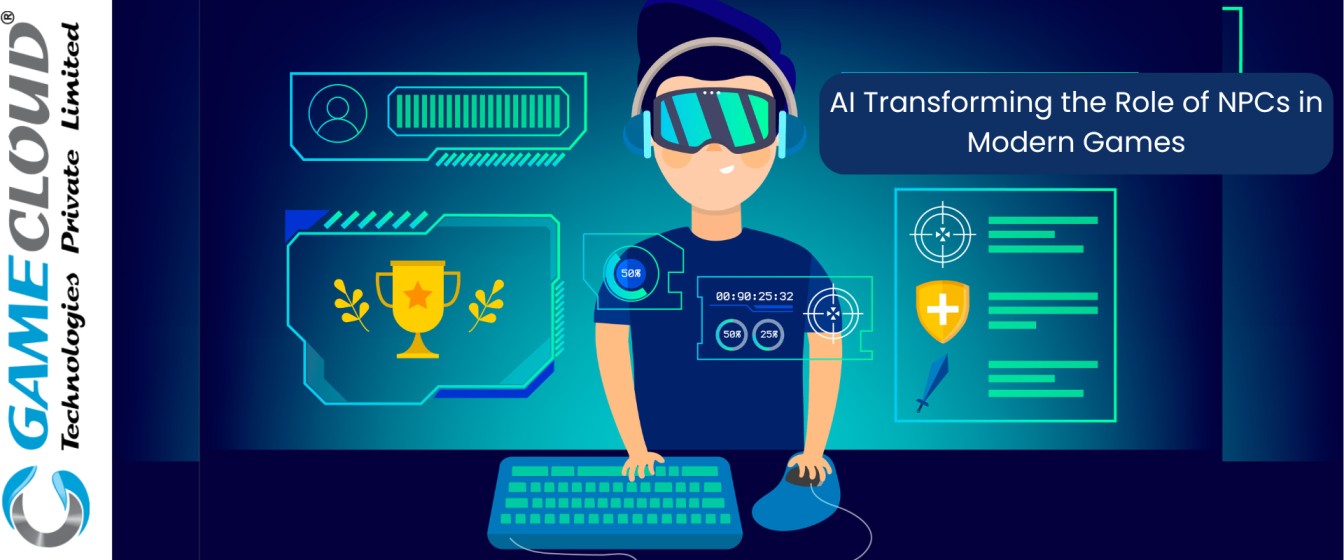
In the ever-evolving landscape of video game development, a revolution is quietly unfolding. At its heart lies artificial intelligence (AI), a technology that’s reshaping one of gaming’s most fundamental elements: non-player characters (NPCs). Once relegated to scripted responses and predictable behaviors, NPCs are now on the cusp of a transformation that promises to redefine player experiences and push the boundaries of virtual world-building.
The Evolution of NPCs: From Static to Dynamic
Traditionally, NPCs have served as quest-givers, merchants, or simple background characters, adding flavor to game worlds but rarely offering truly dynamic interactions. Their behaviors were typically governed by pre-written scripts and decision trees, limiting their ability to adapt to player actions or provide unique experiences across multiple playthroughs.
However, the integration of AI is changing this paradigm. Modern NPCs are becoming more responsive, adaptive, and, in some cases, indistinguishable from human-controlled characters. This shift is driven by several key AI technologies:
- Machine Learning: By analyzing vast amounts of player data, NPCs can learn and adapt their behaviors over time, creating more realistic and challenging interactions.
- Natural Language Processing (NLP): Advanced NLP allows NPCs to engage in more natural, context-aware conversations with players, moving beyond simple dialogue trees.
- Procedural Generation: AI-driven procedural generation creates unique NPC backstories, appearances, and even quests, ensuring no two playthroughs are exactly alike.
- Behavior Trees and Utility AI: These AI techniques enable more complex decision-making processes for NPCs, allowing them to weigh multiple factors before choosing actions.
The Impact on Gameplay and Immersion
The integration of AI into NPC behavior is having a profound impact on game design and player experiences:
- Dynamic Storytelling: With AI-driven NPCs, game narratives are becoming more fluid and responsive to player choices. NPCs can remember past interactions, form opinions about the player, and adjust their behavior accordingly. This leads to more personalized storytelling experiences where player actions have meaningful, long-term consequences on NPC relationships and the game world.
- Enhanced Realism: AI enables NPCs to exhibit more human-like behaviors, from daily routines that adapt to in-game events to emotional responses that feel authentic. In open-world games, this can create a sense of a living, breathing environment where NPCs have their own goals and motivations beyond serving the player’s needs.
- Emergent Gameplay: As NPCs become more autonomous, they can create unexpected situations and interactions. This emergent gameplay keeps experiences fresh and encourages players to experiment with different approaches to problem-solving.
- Adaptive Difficulty: AI-powered NPCs can adjust their skill levels based on player performance, providing a more balanced and engaging challenge. In combat scenarios, this might mean NPCs learning from player tactics and developing countermeasures, while in puzzle games, it could involve NPCs offering more or less assistance based on the player’s progress.
Technical Challenges and Solutions
Implementing advanced AI for NPCs is not without its challenges. Game developers are grappling with several key issues:
- Computational Demands
Sophisticated AI systems require significant processing power, which can be particularly challenging for console and mobile platforms. To address this, developers are exploring cloud-based AI solutions and optimizing algorithms for efficiency.
- Balancing Autonomy and Control
While increased NPC autonomy can lead to more dynamic gameplay, it also risks creating unpredictable scenarios that may disrupt the intended player experience. Developers are working on systems that strike a balance between NPC freedom and narrative control, ensuring that key story beats remain intact while allowing for flexibility in how they’re achieved.
- Ethical Considerations
As NPCs become more lifelike, questions arise about the ethical treatment of these virtual entities. Some games are exploring themes of AI rights and the moral implications of creating increasingly sentient virtual beings.
The Future of AI and NPCs
As AI technology continues to advance, we can expect even more significant changes in NPC behavior and game design:
- Emotional Intelligence: Future NPCs may be able to read and respond to player emotions, potentially through facial recognition or voice analysis, creating deeply empathetic interactions.
- Persistent Online Worlds: AI could enable NPCs to continue “living” and evolving even when players are offline, creating truly persistent game worlds.
- Cross-Game Learning: NPCs might learn from player behaviors across multiple games, tailoring experiences based on a player’s overall gaming history and preferences.
As a subsidiary of the renowned GameCloud Technologies, Ankatmak offers a range of AI-powered services that could seamlessly integrate with the role of NPCs in modern games. Our expertise in AI outsourcing, prompt engineering, and custom chatbot development could enable game developers to create more lifelike and responsive non-player characters (NPCs) powered by advanced AI algorithms. Meanwhile, GameCloud’s other sub-brand, LolzSoft, specializes in game development and could utilise our AI capabilities to enhance the overall gaming experience for players.
Conclusion
The integration of AI into NPC design is more than just a technological advancement; it’s a paradigm shift in how we think about virtual worlds and interactive storytelling. As NPCs become more lifelike, adaptive, and autonomous, the line between scripted experiences and emergent gameplay continues to blur. This evolution presents both exciting opportunities and complex challenges for game developers. Balancing technological innovation with game design principles, narrative control, and ethical considerations will be crucial in harnessing the full potential of AI-driven NPCs. As we stand on the brink of this new era in gaming, one thing is clear: the NPCs of tomorrow will be far more than just background characters. They will be the beating heart of virtual worlds, driving player engagement and pushing the boundaries of what’s possible in interactive entertainment.
The future of gaming is here, and it’s intelligently animated.
